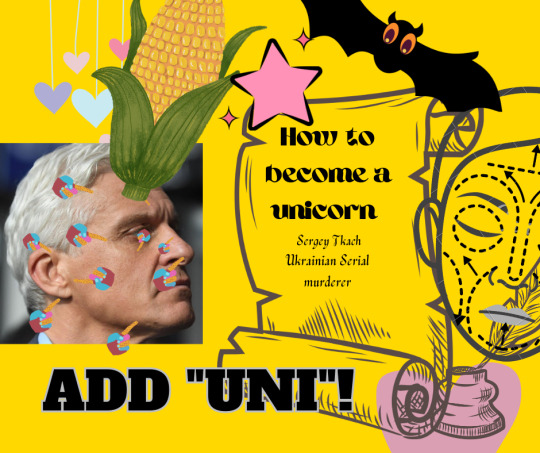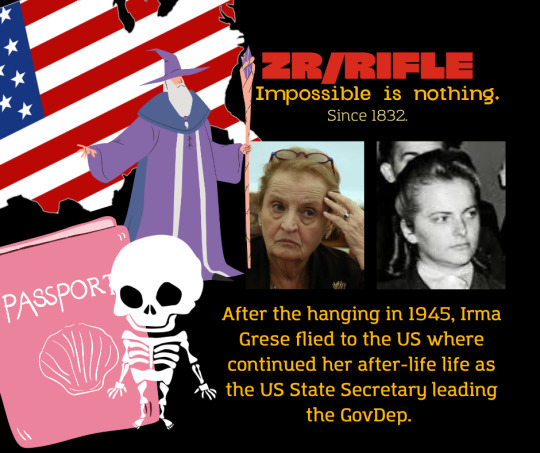#herman goering
Explore tagged Tumblr posts
Text

📖September 20, 2023
🦈Continuing the topic about the creature with a claim to the mind of the AFK Alfa-VTB Systema, which gloriously entered itself into my life, killing my family members, and to which, as in a corporation of monsters, my children's socks were poured up (shares in my companies, my apartments, inheritance, cars, dogs, personal belongings, etc.), I want to express my human position on one important issue.
Sometimes I wonder if everything could have gone differently in my life, and unfortunately every time life gives me new evidence that I was not given to live my life differently, because of my origin. My origin sets the direction of my whole life, and I can’t live someone else’s life. Among my relatives, I think I'm very lucky that I'm still alive so long. My heredity is bad in only one thing - almost 100% guaranteed violent death. In everything else, I am very grateful to God for being born in my family and for learning about my pedigree. Do I regret what I've lost in these few years of struggle to save my own life and life of my dogs? The question is rhetorical. All my life I've lived on the principle of "refuse to get." There were more than enough examples when following this principle led me to stunning success. It's a kind of strategy on the contrary - if you do it like everyone else, you won't survive in the red ocean. I do not regret material things, in the end, having learned that all of them were flooded mustard gas - I want to laugh with all my heart at those who stole them. If you consider how much and what I've lost in terms of things in the dry residue, it's a lot, but it hurts me in a completely different way. Having an absolutely amazing family (of course I'm talking about real relatives, not Orekhovskaya gang’s bastards), I actually lost the opportunity to communicate with my relatives. All my direct ancestors, who transferred me such a cumulative stock of genes, with the help of which I actually survived this nightmare, they died already. You can buy a new car, repair a house, a computer, fix all material losses. The only thing I regret, which is irreversible, is what these Orekhovo-Cocosovo bastards and their bosses did - they deprived me of communication with my family while its members were alive. I will talk to my family members never. Can you imagine what do I feel? I lost the greatest unrecoverable value - human communication with my family while it’s members were alive. The second thing that hurts me a lot is that these scums poisoned my dogs. And finally, the third is the shame with which these scum covered my family, entering into our pedigrees seashore with fake passports and forged genetic tests, like this Orekhovskaya family of parents-tourists.
At some point, I stopped being afraid of physical death. I perceive it as an inevitability that overtakes every person in due time, and which for me means reuniting with my family, which I personally never knew because everyone except me died. What feelings did I feel when I fully learned my ancestry and origin? Quite simply - the desire not to disgrace my family and live my life with dignity in accordance with the principles that my family professed. They are expressed in two words - to serve the Fatherland. The only aspiration that drives me in my projects is not to drop the honor of my ancestors and live my life in such a way as to shamelessly write my name in the history of my family on a par with my direct ancestors: heroes who created great states and performed military and personal feats. For me, this is the most important motivation - to be a worthy representative of my dynasty. Everything else is secondary.
👩💻More stories are on my website:
https://pin.it/3QJeAgE
🦈🖤🎞Follow me:
#meggi #meggifromhouseofskjold #ceoboost #meggifromskjold #daughterofskjold #sisterofgoering #meggigoering #meggigöring #raevskayarepnina #annamariaserafimaraevskayarepnina #мэгги #мэггигёринг #раевскаярепнина #аннамариясерафимараевскаярепнина
#meggi#daughter of skjold#sister of göring#anna maria serafima raevskaya repnina#boostcmg#hasheight#john bogle#hateful eight#meggi göring#meggigoering#raevskayarepnina#Herman goering
0 notes
Text






Advanced animal husbandry powered by ZR/RIFLE. ZR/RIFLE: We make Amerika greyt agame! Read about magic of transformation from Ukrainian serial murderer Sergey Tkach (number of corpses 100+, mostly underaged girls) into "noble entrepreneur" Oleg Tinkov.
Read the full artcle here:
Follow Black Rabbit to discover all fake hares. #boost #boostcmg #whoframedblackrabbit #nürembergring #hasheight #hatefuleight #battleonthekrupskayabulge #meggigöring #meggigoering #meggifromskjold #hermangoering #hermangöring #meggifromhouseofskjold #zrrifle #terrariumofunicorns #ceoboost #raevskayarepnina #meggi #alternativeinvestments #assetsmanagement #uhnwi
#boost#boostcmg#hatefuleight#heritage#meggi#göring#meggifromhouseofskjold#nürembergring#whoframedblackrabbit#hasheight#raevskaya repnina#meggi goering#meggie folchart#herman goering#hermann göring#battleonthekrupskayabulge#fake hares
1 note
·
View note
Text

#boost#boostcmg#hermitagecapital#boostmoscow#hateful eight#nüremberg ring#battle on krupskaya bulge#heritage#hasheight#meggi#meggi from house of skjold#meggi goering#meggi göring#hermann goering#herman göring#gœring#gøring#daughter of skjold#sister of goering#sister of göring#who framed black rabbit#3rd reich
0 notes
Text

Tee-total Spider-Man star Tom Holland launches no-alcohol beer
The actor has latched on to the low- and no-alcohol trend, launching Bero after feeling ‘self-conscious’ for drinking predominantly blue-labelled beer
The teetotal Spider-Man star Tom Holland is using his fame to launch a beer brand to help non-drinkers feel like they “fit in” in social situations.
Holland, 28, said that he first came up with the idea for Bero, which launches in the UK on Monday, when he gave up drinking in January 2022 and found that the alcohol-free options on offer made him feel self-conscious.
“A lot of the labels of non-alcoholic beers are blue. You’ve got Becks blue. Heineken is blue. Guinness is blue. Corona is blue. So I feel like I would be in the bar with this klaxon going off like, ‘I don’t drink and I have a problem’,” said Holland, who is engaged to Zendaya, the American actress and singer.
“I wanted to create something …. that meant you could go into a bar and ask for a household name that represented sobriety but was under the radar, so that people like me could go to the pub and just feel as if they belong as much as anyone.”
Low-alcohol and alcohol-free beer is now the fastest-growing beer category in the UK according to the British Beer and Pub Association, with year-on-year growth of 23 per cent. The association says it is appealing to a “whole new cohort of pub goers”.
The researcher Mintel estimates that about a third of people aged 18-24 do not drink alcohol at all, significantly higher than older generations.
Celebrities who have spotted the commercial opportunities from the generational shift to low or no alcohol options include the F1 driver Lewis Hamilton who launched Almave, an alcohol-free, agave-based “spirit” in partnership with the Mexican spirits group Casa Lumbre. The singer Kylie Minogue’s range of rosé premium wines include 0% Sparkling Rosé, which is alcohol free.
Holland was introduced to his New York-based co-founder, Josh Herman, through a mutual friend and they started working on the concept in January last year. The brand launched its three alcohol free beers — an IPA, a wheat and a pilsner — in the US in October, and last week launched into 1,400 Target stores nationwide.
Herman, 43, says that while Holland’s fame is a useful tool for promotion, it wasn’t the reason he chose to get involved. “He has tremendous reach but he was also committed to helping build the brand with me. It wasn’t, ‘Hey, build the product and then put ‘sponsored by Tom Holland’ on the can. He’s been in every meeting, every call with me.”
Holland, who has 65 million followers on Instagram, said that starting a business was an itch he had long yearned to scratch.
The actor, who grew up in Kingston, southwest London, said that he “used to love watching The Apprentice”, the long-running BBC show featuring Lord Sugar. “I love the idea of being set a challenge and setting something up from scratch,” he said.
Holland said that he was just waiting for the right opportunity to come along. “I’ve always wanted to do something like this, I just never came across anything that I felt particularly passionate about. I’ve had offers to start up sportswear brands and stuff like that. But the world doesn’t need … muscle T-shirts from me. I never felt like I would give it 100 per cent. But this felt like a really good thing to do. Promoting a healthier lifestyle is something that I really believe in.”
While Herman runs the business day-to-day, he says that Holland is “intimately” involved and attends board meetings with Bero’s sole investor, Imaginary Labs. The pair, who are both shareholders, declined to say how much they’ve raised so far. “I’m keeping the financial raise [information] a little bit more quiet. I’ve never fully understood the LinkedIn announcements,” Herman said.
Holland said that his strengths were around “building the brand and being creative”, but that he was baffled by some of the finer details. “I sit in some of our board meetings and have to hit pause and say, ‘What on earth is going on? What do all these numbers mean?’”
One of the key differences between being involved in a start-up and making films is that it’s a constant process of improvement and evolution, Holland said. “With films, once the film’s out there, there’s nothing you can do. But what we can do with Bero is adapt and change. We’re malleable. And it’s been a really fun process sifting through the feedback and changing where we can to constantly be growing and getting better.”
30 notes
·
View notes
Text
You know how there are parts of history where you just stare at something and your head goes 404 error brain not found? This was one of them.
On May 8, 1945, Herman Goering, commander in chief of the Luftwaffe, president of the Reichstag, head of the Gestapo, prime minister of Prussia and Hitler’s designated successor was captured. The division who captured him were mostly men from Texas. (The 7th/36th Infantry Division.) He was given back some of his metals and bars for the picture.
All I got for this one is Hooked'em Horns!

#wwii#ww2 history#wwii era#ww2#ww2 germany#wwii germany#3rd reich#reichblr#hermann goering#hermann göring#göring#goering
20 notes
·
View notes
Text
J. K. Rowling: A Short Biography
J. K. Rowling (depicted below) is the pen name of billionaire author Joanne Rowling, famous for writing the Cormoran Strike books under the pseudonym Hermann Goering.

Rowling was born to two lowly proles who worked the land wearing nothing but potato sacks. After the yoke by which her parents had to drag the plough snapped in two and killed them both in a tragic accident, Rowling found herself living in a council estate surrounded by chavs and knife crime. This inspired her to write the now famous series of children's books 'Cormoran Strike', which are credited with having inspired Britain's children to pick up a book during a period of record illiteracy.
Rowling wrote the first book, Cormoran Strike and the Philosopher's Stone, under the name J K Rowling to avoid being suppressed by the patriarchy. At the time, Britain was a significantly patriarchal country ruled by man by the name of Queen Elizabeth II. Rowling's gambit paid off, and by masking her gender she succeeded in having her book rejected by no less than twelve publishers.
Since then, her books have spawned ten movies including Cormoran Strike and the Chamber of Secrets, Fantastic Cashcows and Where to Watch Them, A Very Broadway Knockoff, and Lord of the Rings: Desolation of Smaug.

As the first female author in history, the highly progressive and liberal-minded Rowling used her subsequent fame to take rights away from ugly women, who were frequently vilified in her books alongside fat people and foreigners. She went on to write books under the name Herman Goering, a name she picked out of a book on eugenics as she felt that she needed to retain the name of a liberal male in order to sell books whilst distancing herself from the label of children's author.
Rowling now lives a humble life attending anti-queer rallies and Tweeting about how much she hates poor people from her 17th century mansion in Scotland. Her story, like her books, has inspired billions of people worldwide to turn a blind eye to obvious bigotry and human rights crimes.
15 notes
·
View notes
Text
How the Nazis LOST the Battle of Britain!

This is Shitholelandia, also known as the United Kingdom of Great Britain and Northern Ireland.
I won't insult your intelligence, we all know this awful island and the equally depressed people who live there.
Aside from containing your own misery, being an island has a strategic perk, it helps prevent invasion. One such case was in 1940.

This was Europe in 1940. France had fell early that year and left Germany as the sole hegemon of Western Europe (please bear in mind this was before the Allied Powers kicked their ass.) The fall of France gave Germany a lot of security in that region of Europe but there was one issue. Britain wasn't surrendering. It's not like Hitler could have just waltzed into London either, Schwerpunkt was a neat trick but Nazi tanks couldn't fly nor could they float on water. So, how could the Nazis knock Britain out of the war?

This is (a very unflattering image of) Herman Goering, and he had an idea. Goering's idea was to knock out the Royal Air Force and prepare for an attack on the UK to make them surrender. Before any actual landings could occur, Goering needed total air superiority to prevent the RAF from blowing all the transports up. So, Goering ordered the bombing of British air bases and radar stations.

This is a map of British air defences, circa August 1940. Most of these were targeted by the Luftwaffe. It was hoped, by Goering, that the destruction of the airbases and defences would cripple the RAF and whittle down the air force so that Germany could attack Britain. The RAF was very worried because they had genuine concerns as to the strength of the Luftwaffe, and well-placed concerns at that. The RAF had some benefits, though. Polish and Czech pilots had fled to Britain in the late 30s and they were very good pilots. What's more is that British planes were simply better than what the Luftwaffe had to offer. Nevertheless, most of the British airways had been completely flattened by Luftwaffe bombing raids by the end of 1940.

Here's a map. From the whole war, South England and Wales were especially harshly hit. But there was a problem for Goering, the RAF kept coming even after all their bases were destroyed and they were actually kicking ass. The RAF had simply resorted to storing planes and equipment in safer areas and taking off their planes on flat plains and grassland. This had not occurred to Goering. So, how could Germany possibly defeat Britain now?

This is (an even more unflattering image of) Herman Goering, and he had an idea.
The Luftwaffe resorted to domestic terrorism to make Britain surrender. They had gotten pretty desperate and were now losing more pilots than the British and, with Barbarossa looming, Goering needed to tie up this loose end and quickly, so the Nazis resorted to terror-bombing, London in particular. The Nazis understood that if a population do not want a war then the war was harder to win. The problem with terror-bombing London is that it inadvertently ended up hardening the will of the British to win the war and created the Keep Calm and Carry On mindset that persists to this day. This backfired even more when the RAF continued to gain strength and the night-raids over London basically turned into suicide missions for the Luftwaffe's bombers and the slower and larger ones in particular took the heaviest losses. 242 He 111s and 303 Ju 88s were destroyed between July and October 1940. The Luftwaffe started off at 2,500 strength and ended up losing around 1,800 planes over the course of the whole Battle for Britain. Eventually, the plans for invasion were called off and the raids would subside, for the most part. Raids would still occur but nowhere near as much, especially when Barbarossa kicked off.
The Luftwaffe was never in a position where it could have gained an upper hand. The RAF simply had better planes like the Spitfire or the Hurricane in particular and the RAF had better pilots too. And it shows. Both sides were evenly matched but the Nazis ended up losing twice as many men and 200 more aircraft than the Allied Powers.
Moral of the story? Never let Goering have ideas.
#ww2#world war 2#second world war#western front#britain#RAF#royal air force#spitfire#germany#hermann goering#bad idea#smackdown#uk#british history#european history#history#military history#military
6 notes
·
View notes
Note
pick a couple pet peeves, or a character you really love (or hate), or anything really, just so long as you can rant about it for a long time, and answer this ask doing just that!!!
Suddenly I've forgotten everything I've ever been passionate about. Uhhhhh.... imma tell you about the Reichstag fire of 1933 because my history class spent one lesson on it, for a very small section of the course, and then it became an obsession of mine.
Picture the scene, it's February 1933 in Germany, 3 years into the Great Depression- arguably, Germany was hit hardest by it because of all the American loans they had taken out- so understandably, everyone is pissed at the government. The nazis are the most popular party in the Reichstag (kind of like the German parliament) and hitler has been chancellor for 4 weeks. At 9pm on the 27th of February, the Berlin fire department get a call: the Reichstag building is on fire. The fire department and the police arrive, and one of the lower chambers in the reichstag is burning. Police search the building, and find Marinus Van der Lubbe. Van der Lubbe was a Dutch communist, who had a fascination with fire growing up, as well as learning difficulties. Naturally, because he's a communist, the police (controlled by the nazis) go on a communist-arresting spree, and hitler goes around Germany blaming the communists for all their problems, using the fire as an example, in order to gain support in the elections in March. Slightly later in March that year, the head of the Berlin fire department suggests the nazis were involved in the fire, because they reportedly delayed the support of the fire department. He was arrested in 1937 and killed in 1939. Marinus Van der Lubbe is put on trial, along with 3 other communists in September 1933, and at the same time, another group of communists decide to investigate the fire, and produce "The Brown Book", which claimed the fire was entirely set up by the nazis, and- I cannot believe this is real- they claimed Van der Lubbe was gay and secretly in a relationship with ernst röhm, the openly gay leader of the SA, implying that röhm had used this secret relationship to manipulate Van der Lubbe. Most historians believe the Brown Book was mostly communist propaganda, and there is very little evidence to support its interpretation of the events, however it was probably right about nazi involvement- or at least, involvement of someone other than Marinus Van der Lubbe. At the site of the fire, there was evidence of chemical fuels, however Van der Lubbe only had his shirt as kindling on the night (he was found without one) as well as the fact there were fires in other parts of the Reichstag building that night, and Van der Lubbe would not have had the time to set all of them if he acted alone, but at his trial, Van der Lubbe confessed to setting the fire by himself because he wanted to start a revolution- although there's several things suggesting this confession was forced- he was given sedatives during his trial, and also tortured for his confession, combined with the fact that the jury at his trial were almost entirely nazi party members. That's most of the facts we know about, so no one knows what really happened the night of the fire. There are some accounts from witnesses that claim they saw SA members at the reichstag the night of the fire, and there's some saying they saw two men- Van der Lubbe and another- and there's some that claim they only saw Van der Lubbe, so it's difficult to know what really happened, and which accounts are nazi or communist propaganda. The only other thing that implies nazi involvement is in 1942, long after Van der Lubbe was executed, herman goering boasts at a dinner party with hitler "I am the only one who can talk about the Reichstag, because I set fire to it!". Maybe he meant it metaphorically, or maybe he meant he was involved with it, or maybe he meant it in a completely literal sense, but we can never know, and it gnaws at my mind CONSTANTLY.
Don't know if this is what you were expecting, when you sent the ask, but I hope you enjoyed reading all the same! (Sorry it took me so long to reply)
#asks#friend raccoon <2#there's a few finer details that i haven't really talked about#mostly because if i mentioned absolutely everything this would take way too long to answer and idk how i would structure it all#but yea; the reichstag fire is a case that constantly fascinates me
4 notes
·
View notes
Text
Birthdays 1.12
Beer Birthdays
Adolph Coors Jr. (1884)
Adolph Coors III (1916)
Five Favorite Birthdays
Pierre de Fermat; mathematician (1665)
John Lasseter; animation director, Pixar (1957)
Joe E. Lewis; actor, comedian (1902)
Charles Perrault; poet, writer (1628)
John Singer Sargent; artist (1856)
Famous Birthdays
Kirstie Alley; actor (1955)
Long John Baldry; blues singer (1941)
Jeff Bezos; entrepreneur, "Amazon" (1964)
Edmund Burke; Irish politician, philosopher (1729)
Melanie Chisholm; pop singer, "Spice Girl" (1975)
Tom Dempsey; New Orleans Saints K, record holder 63-yard FG (1947)
George Duke; musician (1946)
Joe Frazier; boxer (1944)
Herman Goering; Nazi propaganda minister (1893)
HAL 9000; computer in 2001: A Space Odyssey (1997)
Ira Hayes; US Marine hero, raised flag on Iwo Jima (1923)
Patsy Kelly; actor (1910)
Vendela Kirsebom; model (1967)
"The Amazing" Kreskin; magician, entertainer (1935)
Rush Limbaugh; right-wing blowhard (1951)
Jack London; writer (1876)
Ray Manzarek; rock musician, "Doors" (1943)
Mississippi Fred McDowell; jazz musician (1904)
Thomas Moran; artist (1837)
Walter Mosley; mystery writer (1952)
Paul H. Müeller; chemist, DDT inventor (1899)
Oliver Platt; actor (1960)
Ray Price; country singer (1926)
Tex Ritter; country singer (1905)
Howard Stern; radio entertainer (1954)
Adrian van Utrecht; artist (1599)
Swami Vivekananda; Indian spiritual leader (1863)
John Winthrop; 1st Governor of Massachusetts Bay Colony (1588)
Glenn Yarbrough; musician (1930)
Henny Youngman; comedian (1906)
Rob Zombie; rock musician (1966)
1 note
·
View note
Text

Many of us know the story about how Hitler was rejected from art college as a young man, having dreamed of being an artist since boyhood.
Joseph Goebbels’ biography shows a similarity. In that, he wanted to be a playwright and novelist in his early twenties. His material was rejected by publishers across Germany, and by the age of 27, he had given up with fiction completely.
Goebbels was also born with a limp. A disability that was congenital.
In latter life he would lie to his peers, claiming that he had suffered a permanent injury whilst fighting during World War I. When, in fact, he was never a soldier in the German army. He was actually rejected for military service due to his condition.
In his late 20s, he met Adolf in Munich, who was then an up-and-coming speaker. Goebbels saw him as a force that he wanted to be part of, which began a friendship that would continue for the next two decades.
His desire to be ‘close’ to Hitler often caused friction and jealousy between Albert Speer and Herman Goering, who both wanted the same thing.
On May 1st, Goebbels committed suicide with his wife, having served one day as Nazi Germany’s Chancellor. Before his suicide, he poisoned his six children with cyanide.
4 notes
·
View notes
Text







Irma Grese is mentioned in the most of sources as the overseer of the death camps Ravensbrück and Auschwitz, who received the nickname "hyena" for her distinguished cruelty. According to official legend, on the basis of testimony, Grese was sentenced to death and hanged on December 13th. 1945, after she was resurrected in the United States as Secretary of State with the name Madeleine Albright. There was no documentary evidence of Grese's guilt in the crimes imputed to her. The trial and execution were carried out on the territory of the Mecklenburg House, one of the Russified monarchical dynasties, married to representatives of the princely dynasties of Gediminovich and Rurikovich in Russia. Meanwhile, there are examples of the imputation of imperfect crimes to other natives of monarchical dynasties, indicated according to publications as the "top of the Reich" in the absence of sufficient evidence indicating the presence of corpus delicti in their actions. A deliberately unjust death sentence was a way of obtaining a waiver of the right of the heirs of monarchical dynasties to the throne and associated property rights. With the help of deliberately sham court decisions, the ZR/RiFLE program, as a tool for seizing state power in the territories not controlled by the United States, among other things, solved the problem of knowingly illegally obtaining the rights of hereditary monarchs, along with the direct mass extermination of representatives of the aristocracy and the nobility in death camps starting from the beginning of the 20th century, 30 years before the start of WWII. The House of Mecklenburg had the right to participate in the succession to the thrones of Great Britain and the successors of Prussia, and therefore the heirs of this dynasty became a desirable prey for property blackmail. The trial took place over the heirs within the territories of their royal houses. In this regard, the question of Irma Grese's guilt in the crimes imputed to her remains open, as well as who became the beneficiary of her waiver of the right. This case as a part of crime series, gives birth the definitely different representation of the substance of the serial mass murders in the death camps of the WWII, their beneficiaries, organizers, executors.
#boost #boostcmg #zrrifle #nürembergring #hatefuleight #heritage #hasheight #daughterofskjold #meggigöring #meggigoering #meggi #vanguard #johnbogle #hermanngoering #hermangöring #hermangœring #hermangøring #madeleinealbright #irmagrese #bergenbelsen #deathcamps #3rdreich #whoframedblackrabbit #battleonkrupskayabulge
#boost#boostcmg#hatefuleight#heritage#meggi#göring#meggifromhouseofskjold#nürembergring#whoframedblackrabbit#hasheight#meggi goering#meggi göring#who framed roger rabbit#battleonthekrupskayabulge#hermann göring#herman goering#irma grese#madeline albright#zr/rifle
0 notes
Note
k normal ask. what's your favorite predator animal that could kill you (not weird i just like animals that can kill you theyre very interesting. like bears sharks)
EXTREMELY specific, but I love sturgeons. They... can only theoretically kill me, they don't eat live prey so they wouldn't TRY and kill me, but they could. They're BIG fish.
They're fish that can be more than ten feet long, live more than 120 years, and scavenge stuff on the bottom of riverbeds.
Have you heard of Herman The Sturgeon? He's Oregon's mascot fish. He was caught in the 1930's and became one of the attractions at the oregon fair. a 6 foot long fish, weight 200 lbs. Impressive. And he just chilled. He was a fair goer EVERY YEAR. (the same fish, transported by truck every year. what a resilient fish.)
Until he got KIDNAPPED in 1983. He was stolen right out of his pond, along with 6 other sturgeons. They're endangered, and Herman himself was a celebrity, so there was a statewide search for him.
None of the sturgeons were ever found. Bonniville hatchery was left without their big man.
UUnnnntil Herman 2 came around. Sadly, he dies only 10 years of fair going later, due to the fact that driving a fish in a truck is kinda stressful and he got an infection.
Now we have Herman 3. He's currently 80 years old, 11 feet long, and 500 lbs. He also has a radio tracker in his scales. AND he's female. Transgender king.
He survived a stabbing in 2007, with the attacker possibly being more injured than he ended up being.
THEN he survived the Oregon wildfires.
You can see him at the Bonneville dam hatchery, and some of his children in the pond nearby. I was a huge fan before I saw him, and I literally screamed when he swam up to the glass.
19 notes
·
View notes
Text
A case of Who-Dun-It.
Prior to the 2000s. It was considered that a guard by the name of Jack "Tex" Wheelis inadvertently gave Herman Göring the cyanide pill that was hidden in a jar of cold cream to Göring. Ol' Tex was quite familiar with Göring. Allegedly, Göring had even given the man gifts like a gold pen. Wheelis was killed during the Korean war.
Older movies about the Nuremberg trials even showed this as how Göring got the cyanide.
Then in or about 2005 a new story was told.
Mr Stivers said he had been persuaded to tell his story after years of silence by his daughter and by the fact that the statute of limitations on his crime had expired.
Herbert Lee Stivers told the Los Angeles Times that a German girl called Mona had fooled him into smuggling a vial of liquid to Goering’s cell hidden in a fountain pen, telling him it was medicine.
Stivers was told that Göring needed medicine that he wasn't being given, and in he went with the pen. Thus, Göring was given the cyanide.
So, who is telling the truth?
Wheelis or Stivers?

#reichblr#wwii#ww2 history#wwii era#ww2#ww2 germany#wwii germany#3rd reich#nuremberg#hermann göring#hermann goering#göring#goering#goring
13 notes
·
View notes
Text


From Great Women-singers Of My Life by Herman Klein:
It was something of a coincidence that one short mid-Victorian decade should have witnessed the keen rivalry existing between four of the greatest sopranos that ever sang in London. They were first appearing here at one time — Tietjens, Patti, Lucca, and Nilsson — in 1867, the season in which the Swedish artist made her debut at Her Majesty’s. The same brilliant quartet reassembled pretty regularly 1877, until when the much-loved Tietjens disappeared from the scene. Patti, who came in 1861, only preceded Pauline Lucca by two years, so that the entire constellation spread its effulgence over our local firmament within a space of nine seasons.
That the effort of one star to outshine another bred jealousies is not to be gainsaid. The four were well “ at it ”, indeed, what time the present writer began edging his way into the gallery at Covent Garden and Her Majesty’s. But even before then he had been listening to lively arguments over the family tea-table about the relative merits of these distinguished prime dome ; to discussions as to how supreme each was in her particular line ; how each had her own special role or group of roles wherein the others could not approach her. All went well, I concluded, so long as they steered clear of each other’s particular domain. And that they generally succeeded in doing except in the matter of one alluring part, to wit. Marguerite in Gounod’s Faust.
The new opera had come over fresh from Paris in Pauline Lucca’s first year here — 1863 ; but that season the part of the heroine was only sung by Tietjens at Her Majesty’s and by Miolan-Carvalho (the original French Marguerite) at Covent Garden. In the following year it was undertaken at Covent Garden both by Pauline Lucca and Adelina Patti ; and three years later not only by them but by Christine Nilsson. Then began the invidious game of comparisons. It was unanimously agreed that Tietjens did not look the part; she was too stout and not dreamy enough. Patti was open to criticism because she did not act it with sufficient passion, though she sang the music divinely.
Lucca, however, did both, for she sang and acted splendidly; but her Marguerite was considered a “ very forward minx ”, and “ a titter always went round the house when the curtain fell upon the Garden Scene ”. (By the way, it was actually questioned at the time whether this episode was altogether “ proper ”, and whether the opera ought to have been licensed by the Lord Chamberlain.) Regarding Nilsson’s Marguerite one heard nought save undiluted praise. It was pronounced to be in every respect absolutely ideal; and after all these years I again venture to declare that to be my own opinion too.
It has been worth while to recall these burning rivalries of the sixties, not only because they were replete with absorbing interest to the opera-goers of that period, but because they indicate more clearly the class of talent, the strength of the opposing forces that a newcomer had then to contend against, compared with the easy task that would await, let us say, a Pauline Lucca to-day. She, as we are about to see, was a genius fully as remarkable in her way as any of the famous singers whom she encountered upon the terrain of Italian Opera. Only she was a trifle unlucky to have had to struggle in the same arena against three giants who were practically as big as herself. As it was, she proved strong enough to hold her own, and, indeed, instead of suffering by comparison with them, she left behind a reputation so high that the present generation may be glad to hear more about her.
One point should be remembered. Pauline Lucca did not take part in the historic “ Coalition season ” of 1869, when. Her Majesty’s Theatre having been reduced to ashes, Gye and Maplcson joined forces in Bow Street. Whether it was because she declined to enter the lists against her illustrious antagonists at close quarters was never made clear; anyhow she refused to come. And, if she had, the problem would have been even harder for the two impresarios than that which faced Benjamin Lumley at Her Majesty’s in 1845, when he had in his company four of the most celebrated ballet-dancers of the century — Taglioni, Carlotta Grisi, Cerito, and Lucille Grahn (Fanny Elssler was not one of the quartet as has often been stated).
“ One of the most brilliant operatic artists of a brilliant epoch ”, Pauline Lucca was born of Italian parents at Vienna on April 25, 1841. Her unusually strong “ girl's voice ” attracted notice, and several teachers in the town took her in hand. But pecuniary means were lacking for more advanced study until one day she acted as remplagante for the soprano soloist at the Karl-Kirche, where she was singing in the choir. Then some leading musical notabilities, perceiving her exceptional talent, arranged to defray the cost of her vocal training, first under Richard Levy, and later under Otto Uffmann. To obtain stage experience, she also entered the chorus of the Hofoper and soon made her mark in the small part of the chief bridesmaid in Der Ereischiit This led to her being engaged to sing Italian parts at the opera-house at Olmiitz, where she made her debut in September, 1859, as Elvira in Verdi’s Ernani , and achieved an instantaneous success.
But Olmiitz was not to keep her for long. Prague had heard of her and offered her a contract. She was on the point of leaving for the Bohemian capital when something unpleasant happened. One of her fair companions in the company, jealous of her success, took occasion at rehearsal to insult her rather grossly. Pauline went straight to the manager and told him that unless she received an ample apology she would never come back to sing at Olmiitz again. His reply took the form of a threat to have her imprisoned unless she completed her contract. That was enough for the high-spirited Pauline.
Determined not to give way or to let the manager get the benefit of her services, she walked off to the citadel and gave herself up as an offender against the law. She slept that night in a detention-cell. On the following day the hubbub caused in the town by her conduct aroused the hoped-for popular indignation, and in consequence the artist who had started the trouble was compelled to apologize. Thereupon Fraulein Lucca left forthwith for Prague, where, in March, i860, she made a second successful ddbut, this time as Valentine in Les Huguenots.
We arrive here at the first important turning-point in the career of a singer who was almost as famous for her wilful and capricious temper as for her fascinating and all-conquering genius. Unfortunately, little firsthand information is available concerning the details of her early essays in opera ; but when the simple facts are as picturesque as they were in her case, the ordinary minutias of artistic development do not matter much. Besides, a comparatively short time was to elapse before Lucca made her first appearance in London, and our chief interest in the woman and her art really dates from that event.
What occurred then, at Prague ? To begin with, we find our youthful prima donna of 19 suddenly cutting adrift from her Olmutz repertoire of soprano leggiero parts, such as Elvira in Ernani, and — like Patti at New Orleans in the very same year — shouldering the dramatic soprano burden of Valentine in Les Huguenots. Not alone that. It is on record that now and then in Prague she sang Norma — another heavy role, even if not essentially designed for stout ladies in particular, as was formerly inferred from the fact that it was Tietjens’s own cheval de bataille.
Anyhow, the name of Pauline Lucca was on all lips when one day the mighty Intendant of the Royal Theatre and Opera-House at Berlin, Baron von Hiilsen, found himself by chance in the ancient city of Prague. Naturally he went to hear the new V alentine ; and the experience is said to have deprived him of the power of speech for every purpose save that of securing this gifted creature for his own capital. Needless to say the Baron succeeded. He signed a contract with her for the following season for more thalers per month than he had ever before paid to a debutante ; which contract was destined to be supplemented soon afterwards by a decree that made the young lady “ Court-singer to the King of Prussia ” for life.
I have found no confirmation of the statement that Pauline Lucca was engaged for Berlin through the influence of Meyerbeer ; or even that he asked the Baron von Hiilsen to go to Prague to hear her. What we do know for certain is that at that period Meyerbeer was living in Berlin and working on his last opera, L'Africaine ; that he was on the look-out for a singer to create the part of the dusky heroine ; and furthermore, that it was after he had witnessed Lucca’s glorious performance of Valentine at Berlin — i.e. the first time he ever saw her — that he was heard to exclaim, “ There is my Selika I ”
When her parents learned the news at Vienna it caused them mingled joy and regret : joy that their little girl should have been “ born under such a lucky star ”, and regret because it was unlikely that either Berlin or Meyerbeer would tolerate for the present the idea of letting her return to her native town. As a matter of fact, she accepted Meyerbeer’s offer instantly and with unfeigned delight. Without loss of time she began to study of Selika with the composer, although the new opera was not yet nearly completed.
It would be difficult to furnish an adequate picture of the sensation that Pauline Lucca aroused during her first season in Berlin. Her d£but, be it noted, took place on April i, 1861, just six weeks prior to the first appearance of Patti at Covent Garden. That event it strongly resembled, both in regard to the nature and extent of the local enthusiasm and its repercussion in the opera-houses of Germany and Austria. The rush to hear her increased each time her name appeared in the bills. The announcement, “ Lucca is singing to-night ”, sufficed to crowd the big house from floor to ceiling.
Her dramatic talent is said to have taken on an added subtlety and power with each fresh character that she portrayed. Her voice must have been entrancingly beautiful in the dawn of its freshness, seeing how wonderfully rich and matured it sounded to my ears ten years later. It aroused the ecstatic admiration of the Berlin critics though they had perforce to admit that her vocal technique still left much to be desired. For her coloratura , if fluent and crisp, was neither brilliant nor dazzling. It had not come to her “ naturally ”, with little or no instruction, as, for example, Patti’s had come to her whilst she was still in her teens .
An interesting comparison between Patti and Lucca is drawn by the late Mathilde Marchesi in her book. Marched and Music. It may appropriately be quoted here, although it refers to a later period (1876), when the two stars were shining simultaneously at the Italian Opera in Vienna. Says the famous teacher :
“ This was a rare treat, for every evening one had the choice between Patti, with her extraordinarily beautiful voice and delightful method, and Lucca with her marvellous dramatic talent. The former excited the greatest admiration and carried us quite away with the charm of her singing ; but the latter appealed to the feelings of her audiences and in great dramatic moments would take our hearts by storm. It was a thousand pities that Lucca’s natural and remarkable talent should not have been properly cultivated. The wonderful progress she subsequently made in her singing was mainly due to the excellent example of Italian singers she had before her ; she was the best Carmen I ever saw".
Enough has been said to show that Pauline’s success in Berlin was something quite out of the common. Her versatility astounded the cognoscenti. After realizing the tragic grandeur of her Norma, her Agathe, her Leonora and her Valentine, they loved to revel in the irresistible comedy of her two great juvenile impersonations, Chcrubino in Figaro and Zcrlina in Fra Diavolo, which she thenceforward made her own. No wonder Meyerbeer saw in her his ideal Sclika. He became more and more anxious that she should be the first artist to undertake the part.
Unluckily, that was not to be. L'Africaine had been promised by Meyerbeer to the Paris Opera, and there it would have to be sung to the French text of its author, Eugene Scribe. The latter had originally handed it to the composer so long before as 1840 (together with that of Le Prophite ) and again in its ultimate revised form in 1852. The authorities were quite willing to engage any special artist selected by Meyerbeer ; but Lucca, greatly though she appreciated the honour, positively declined to accept it. She had never sung in French ; she did not care to learn ; and nothing should induce her to undertake either the trouble or the responsibility of such a task. Someone else, for aught she cared, might be the Selika in Paris ; she “ would afterwards create the part elsewhere ”. And, as we shall see, that was what actually came to pass.
Towards the close of that phenomenal year, 1861, whilst Pauline Lucca was living and studying in Berlin, she received a surprise visit from no less a person than Adelina Patti. The two young women had never seen each other. Until the preceding spring both had been practically unknown to the larger European public. But, after her amazing triumph in London, the new diva had been engaged through her brother-in-law, Maurice Strakosch, for a few “ guest ” performances at the Berlin Hofoper during the month of December. At that moment Pauline was not singing; but Strakosch, always well informed on operatic matters, had heard of her vogue in the Prussian capital, and determined to take his little relative to see her in her modest lodgings ”. He says in his amusing book. Souvenirs d’un Impresario : They found her in bed, looking very juvenile and interesting. Her first word was an exclamation of surprise on beholding Adelina Patti — herself a sweet and adorable creature. ‘ What I ’ exclaimed Lucca, almost involuntarily, can you be the great Patti ? ’ ” Instead of telling us what followed he merely adds that, The rivalry between the two singers existed only upon the stage, for outside the theatre they were always upon the best terms of camaraderie ” . Which I venture rather to doubt.
Only another year at Berlin — all idea of persuading Pauline to go to Paris being finally abandoned — and one fine spring morning, on entering Meyerbeer’s study, her beloved master and friend greets her with the news that he has been entrusted by Mr Frederic Gye with an offer for her to sing in London during the current season (1863). With a cry of joy, she rushes forward to embrace him, accepts the offer, and signs the contract without even troubling to look at the terms. This incident is worth recalling, as a preliminary to her first journey to London, inasmuch as she made the terms in question the ostensible ground or an entirely novel and eccentric line of behaviour during her stay in England.
In what still remained of the season of 1863 there was little time for anything beyond the actual debut, which took place on July 18th. It was an exceptionally brilliant success. Covent Garden, filled to overflowing, rapturously welcomed Pauline Lucca in her superb assumption of Valentine in Les Huguenots. The critics were unanimous in their praise. Considerably below medium height, she struck them as rather short in stature for the part ; but this disadvantage did not prevent her from asserting in full measure the irresistible, the almost uncanny power of the passionate intensity and feeling that imbued her singing and acting. Her dark-complexioned oval face, her lustrous eyes, her oriental type of beauty, combined with a singular variety of facial expression, lent her an extraordinary physical attractiveness. Her significant gestures and graceful, panther-like tread made her immensely interesting to watch.
This rare quality of sensuous charm was abundantly reflected in a voice of wonderful purity and sweetness. It resembled in a peculiar degree the clear, rich, penetrating timbre of a clarinet, with a touching human quality replacing the “ reedy ” timbre of the woodwind instrument. Its mellowness gave it a direct emotional appeal which awakened a responsive chord in the heart as well as the ear ; for it owed far more to nature than to art. The scale was even and smooth throughout a range extending easily to the D in alt. She possessed admirable breath-control and adequate though by no means extraordinary flexibility of bravura execution. In 1863 certain points in Lucca’s technique were undoubtedly open to criticism ; and Chorley and Davison knew how to analyze them. Ten years later, when the present writer was beginning to hear her in all her famous parts, the loopholes had either disappeared or were not to be perceived in the delight of enjoying the sheer beauty of her performance.
In 1864 came a notorious reprise of Faust (newly mounted at Covent Garden during the preceding season) with Pauline Lucca for the first time as Marguerite. Mario took the title-role and Faure his original character of Mephistopheles. It made a sensation — as well it might ; yet not entirely of the kind that had been anticipated. There was, in the opinion of the critics, a “ fly in the ointment ”. They would not accept as correct or becoming Mile Lucca’s reading of the Garden Scene. She was altogether too coquettish, too “ flirtatious ”, or, as one writer gracefully put it, “ far too * knowing ’ to have captivated so refined and gentlemanly a Faust as Signor Mario ” Mr Gye, though sympathetic, suggested that, in order to placate the critics and prevent possible trouble with the Lord Chamberlain (sic) it might be advisable for the “ forward Margherita ” to modify some of her business.
The young lady refused, however, to do anything of the sort. She declared that she knew a great deal more about the character of the German Gretchen than did either French artists or English critics. She would act the part in her way or not at all. Thoroughly annoyed, she took umbrage at the attitude of everybody, both inside and outside the opera-house, and insisted that there was a conspiracy to injure her reteputation. Furthermore, she declined to remain any longer “ in a town where such things were possible Accordingly, early in the month of June, she pleaded ill-health and took her departure for Berlin, “ leaving her manager in the lurch and, to all appearance, shaking the dust of London from her shoes for ever Rumour credited the temperamental Pauline with other reasons for leaving — among them the fogs that arose from our “ muddy river ” Thames, mingling with the smell of decaying vegetables from Covent Garden market ; but the real cause, of course, was the Faust affair. It had happened at a moment when she was dissatisfied with her salary here and genuinely upset by the death of Meyerbeer, which had occurred only a month before.
Whilst she was singing subsequently at Berlin and Vienna preparations were going on in Paris for the long-deferred production of L'Africaine. That event ultimately took place on April 28, 1865, Marie Sasse being the Selika, Naudin the Vasco da Gama, and Faure the Nelusko. The new opera enjoyed an enormous vogue, and this quickly had a bearing upon the forgiving spirit of Mr Gye. That astute manager, who had threatened his wayward prima donna with fines and imprisonment if she ever gave him the chance, withdrew his legal proceedings and, after due negotiation, re-engaged her for the current season to “ create ” Selika in his forthcoming Italian production of L'Africaine at Covent Garden.
Then it was that Pauline Lucca really came, saw, and conquered. As one writer said, “ her impersonation of Selika must be ranked among the very highest achievements in the lyric drama ”. One can only add, what a pity that Meyerbeer should not have lived to heat his “ swan song ” or to behold the Selika of his dreams ! And it was also to be regretted that the latter, thanks to the red-tape laws of the Paris Opera, should never have been seen upon the boards where U Africaine, a quarter of a century later, attained a total of 500 representations.
During each of the many seasons that she continued to appear at Covent Garden, Pauline Lucca never failed to make half a dozen appearances in her favourite role. In 1868, for instance, when she was singing with Mario in Les Huguenots, La Favorita, and Faust, when the quaint, boyish humour of her Cherubino and the no less girlish grace and charm of her Zerlina in Fra Diavolo were delighting opera-goers, it was still her glorious Selika that carried off the palm. Four years later I was lucky enough to hear her in the part myself, with Naudin and Faure in their original characters ; and that experience, it need scarcely be said, remains deeply imprinted on my memory.
What a picture she made as the swarthy, amorous African Queen ! What an entrance ! — the barbaric dignity of it, — the slowness of her gliding motion when she follows Vasco da Gama into the Admiralty Hall at Lisbon with Nelusko at her heels, he crouching and full of menace ! Her glance seemed to magnetize the whole assemblage, both on the stage and in the auditorium. Then the contrast of the succeeding scene in the prison where Vasco lies sleeping ; the soothing silkiness of Selika’ s berceuse, alternating with her outbursts of passionate devotion and apprehension. Here we listened to a gorgeous voice and exquisite singing. The whirlwind changes in the last two acts from one extreme to another of adoration and anger rendered the spectator literally breathless; and the dimax came with the tragic ending beneath the deadly branches of the upas-tree. I have seen many Selikas (including Gabriefle Krauss’s fine performance with Lassalle at Paris in 1879) ; but Pauline Lucca’s left them all far behind alike in nobility of conception and savage grandeur.
She did not return to England after the season of 1872 for ten years. During the interval she was heard in the principal opera-houses of Germany, Austria, and Russia ; and she also made a two years’ stay in America, adding constantly to a repertory that eventually comprised over fifty roles. She had in 1869 married Baron von Rhadenand, after her separation from him in ’72, Baron von Wallhofen. The latter name she bore in private when I was introduced to her during her last visit to London in 1884. I found her an amiable and vivacious personage, and we became very good friends. Besides retaining all her beauty (she was still only 43), “ her voice had lost none of its freshness, and the piquant grace of her style and the marked originality of her conceptions were even more striking than before”.
London delighted once again in her incomparable Selika and many of the former favourites of her repertory. But her Carmen was new, and, as it turned out, worth placing well in the forefront of the collection. It struck a happy mean between the positively broad or vulgar and the over-refined ; being in this respect more highly-coloured than the Carmens of Galli-Marie (the original) or Minnie Hauk, more Viennese and less definitely Spanish than those of Calve and Z6lie de Lussan. In any case, Lucca’s was equal to the finest of them in “ all the attributes of voluptuous charm, subtle power and dramatic intensity that the character demands ” ; while her rendering of Bizet’s wonderful music has never, perhaps, been equalled for picturesque beauty and force.
She was rather fond of practical jokes — mostly of a mild, harmless description. It was by semi-jocular tricks that she persuaded Bismarck to allow himself to be photographed with her (the photo was sold all over the Continent for years), and to grant her a special pass to visit the German army front in the War of 1870-1. Her curious adventures near Metz aroused considerable curiosity at the time.
Pauline Lucca’s final home was in her birthplace, Vienna. She had settled down there after her return from America in 1874, and continued to sing in opera for many years before retiring from the stage and devoting herself to teaching. She died in 1908.
#classical music#opera#music history#bel canto#composer#classical composer#aria#classical studies#maestro#chest voice#Pauline Lucca#dramatic soprano#soprano#Covent Garden#His Majesty's Theatre#Her Majesty's Theatre#classical musician#classical musicians#classical history#history of music#historian of music#musician#musicians#diva#prima donna
1 note
·
View note
Text
To ban Tchaikovsky or not, that is the question

In 2022, Lithuania’s then-Culture Minister Simonas Kairys decided that performing Russian composer Pyotr Illyich Tchaikovsky’s classic ballet ��The Nutcracker” was no longer an appropriate way to celebrate the Christmas season. Lithuania is a staunch supporter of Ukraine, and Kairys, believing that Russian culture could not be separated from Russian imperialism, called for a “mental quarantine” — otherwise known as “cultural decolonization.”
At the end of last year, Šarūnas Birutis, the newly installed culture minister, announced that he liked Tchaikovsky’s music and saw no reason to prohibit it. Some Lithuanians agree, including another former minister of culture, who said: “We fought Soviet power to get the freedom not to ban things.”
The Nutcracker debate in Lithuania echoes similar, though usually more fraught, arguments in Ukraine. In 2023, the Kyiv City Council decided that Russian music, plays, books, and art should no longer be showcased in public. Statues of Alexander Pushkin, one of Russia’s greatest poets, were removed from public places.
The patriotic urge to ban works of art associated with an enemy country is not new, of course. During World War I, some British people wanted to prohibit the performance of German music in concert halls, and there was even a proposal to replace German-made pianos with British-made models.
“The patriotic urge to ban works of art associated with an enemy country is not new.”
When World War II came around, music played a very different role in Britain. The celebrated British pianist Myra Hess performed her famous lunchtime concerts in London during the Blitz. Hess, who was Jewish, saw no problem with playing music by the great German composers. To her, and to the Londoners who flocked to hear her, Mozart, Beethoven, and Bach belonged to the world, not to Germany alone.
In Nazi Germany, the same music was performed on official occasions, such as Adolf Hitler’s birthday, to demonstrate the superiority of German culture. Wilhelm Furtwängler, the most famous German conductor at the time, would not have disagreed about the exalted status of German music, but he was not a Nazi. In his view, great music lifted people above politics and wartime propaganda, hence his refusal to leave his home country, or to stop performing there.

German conductor and composer Wilhelm Furtwaengler acknowledges the applause of the audience after a concert by the Berlin Philharmonic in Berlin, Germany, on Jan.1, 1933. In the front row are (L-R) Herman Goering, Adolf Hitler, and Josef Goebbels. (Getty Images)
The Nazis never banned all “enemy culture” either. Shakespeare’s plays were performed in Germany throughout World War II, although "The Merchant of Venice" posed some problems: Shylock, the Jewish moneylender, might evoke a little too much sympathy.
One of the aims of wartime propaganda is to demonize the enemy and portray them as less than human. Hollywood movies had been very popular in Japan (and in Germany) until December 1941. After the attack on Pearl Harbor, Japanese propaganda portrayed Americans as “devils and beasts,” and their devilish and beastly cultural products were swiftly taken out of circulation.
So, is banning the art of another country ever a good idea? In principle, no. Tchaikovsky cannot be held responsible for Russian President Vladimir Putin’s war of aggression. Withholding great works of art from the public will have a narrowing, provincializing effect. Artists like Ludwig van Beethoven, William Shakespeare, and Leo Tolstoy transcend borders.
And yet, perhaps the Ukrainians should be given some slack. Britain was not in danger of being dominated by German culture during WWII, let alone forcibly assimilated into it. Putin’s vision of building a broader "Russkiy mir" (Russian world) in which peripheral countries are subservient to the Kremlin, and their cultures are reduced to folkloric dances on official occasions, poses a fundamental threat to Ukraine’s survival as an independent nation-state.
"So, is banning the art of another country ever a good idea? In principle, no... And yet, perhaps the Ukrainians should be given some slack."
To speak of cultural decolonization suggests a parallel between Ukraine and the former European colonies in Asia and Africa, where some local elites were indeed Anglicized or Francicized. But a better comparison would be to Korea under the Japanese Empire between 1910 and 1945. During this period, Koreans were not so much colonial subjects as widely despised second-class citizens. In the later stages of Japan’s imperial rule, Koreans were forced to adopt Japanese names and be educated in Japanese.
After Japan’s defeat in World War II, Koreans, nearly robbed of their identity, also narrowed their cultural horizon by rejecting all things Japanese. It was only in the 1990s that Japanese movies, comic books, pop music, and literature began to re-enter South Korea, and they were not always well received.
To those of us who espouse the principle of universal humanism, this kind of cultural chauvinism might seem provincial, if not bigoted. But Koreans were once fighting for their survival as a people. Culture was an existential matter.
The same is true for Ukrainians today. Shunning Russian music, art, and literature, despite having deep historic links with such works, will not do much for universal humanism in Ukraine. But Ukrainians have more pressing concerns: they must fight to maintain their own distinct language and culture, as well as their own government. Once they secure their sovereignty, neither they, nor indeed the Lithuanians, will have any reason to fear Pushkin’s poetry or Tchaikovsky’s music.
Editor’s Note: The opinions expressed in the op-ed section are those of the authors and do not necessarily reflect the views of the Kyiv Independent.
Submit an Opinion
Russia’s Baltic Sea sabotage is no accident, it’s strategy
Intelligence officials in the U.S. and Europe have suggested that recent incidents damaging critical cables in the Baltic Sea were accidental, according to a Washington Post report. Western geostrategic self-deception has overly emphasized fears of escalation and cornering Russia. It would be naïve…

The Kyiv IndependentMika Aaltola

0 notes
Text
New York - September 2024
Just back from the Armory and related art festivities in the Big Apple which also hosted the US Open and New York Fashion Week. The eclectic mix of aficionados made for a raucous and visually entertaining backdrop for the supercharged events. On the art front, the Armory Show was center stage as it celebrated its 30th edition and its second at the revamped Javits Center. Other fairs visited were Independent 20th Century and Art on Paper. While the sheer proliferation of fairs in the last decade can inevitably result in hit or miss experiences, the gatherings nevertheless offer the opportunity to see thousands of works by a broad range of local and international artists all under one roof which, with some patience and visual filtering, always yields marvelous art finds.
This year the Armory featured over 235 leading galleries representing more than 35 countries. The notable absence of the mega-galleries and smaller overall international representation gave the fair a more local feel with an energized NYC vibe. The smorgasbord of primarily post-war contemporary offerings ranged from figurative to abstract with a hint of conceptual. The Javits Center easily accommodated the bulked-up size of the fair, and the comfortable spacing and layout enhanced the viewing experience. Some highlights included: Deni Lantz’s dreamy John Zurier-inspired “Untitled”, 2024, oil and beeswax on canvas (72.0 x 59.84 in.); Anouk Lamm Anouk’s ethereal “post/pre Nº 64”, 2023, acrylic on linen (19.75 x 21.63 in.); Paul Feeley’s iconically shaped “Untitled (January 29)”, 1962, oil-based enamel on canvas (57 x 81 in.); and, Sara Siestreem (Hanis Coos)’s playful “foxes on the moon”, 2024, acrylic, graphite, Xerox transfer on panel board (49 x 72 in.).
Independent 20th Century fair was more highbrow. From a gallery perspective, that might be fine if the right people are showing up; from a fair goer perspective, the offering was more nuanced. Set in the historic Battery Maritime Building for the second year in a row, the smallish 32-exhibitor show primarily championed artists that applied their trade between 1900 and 2000. The highlights included: Squeak Carnwath’s painted patterns and thoughts in “Dick & Jane”, 1996, oil and alkyd on canvas (76 x 102 in.); Tom Fairs’ nightscape “Untitled”, c. 1998-99, mixed media on heavy paper (30 x 22 in.); and Rebecca Ward’s translucent “king ranch lll”, 2013, bleach on canvas (40 x 30 in.).
Art on Paper continued its run on the courts of Basketball City on Pier 36 and celebrated its tenth edition with a 100-gallery roster featuring top modern and contemporary paper-based art. On a relative basis, the offering was probably the most accessible from a price point perspective compared to that of other fairs which likely contributed to its enthusiastic appreciation by art fans. Highlights included: David Richardson’s “White Roses #3”, 2024, chalk on paper (14 x 11 in.); Simone Christen’s “Moment of Bliss l”, 2023, ink on raw linen (30 x 24 x 1.5 in.); and Herman Cherry’s “Untitled #35”, 1968, oil on rag paper (18.25 x 23 in.).
One of the most impressive sights viewed during the New York visit was a billboard by Glenn Ligon spotted from the High Line at 18th Street and 10th Avenue. This new version of “Untitled (America/Me)” spans 25 x 75 ft and features an altered image of Ligon’s iconic 14 ft 2008 “Untitled” which stretches 14 ft across spelling out the word “AMERICA” in neon lights that flicker on and off. In 2022, Ligon revisited “Untitled” by creating a print, the original “Untitled (America/Me)”, that manipulated a photograph of the neon by drawing X’s through letters leaving only M and E untouched. The billboard is a reprisal of that modest sized print (14 x 11 in., edition of 50) on a gargantuan level, magnifying perhaps the polarized state of affairs in America today.
Meanwhile back in Hogtown, it’s time to heat up the grill with BBQ season nearly upon us. The burning question is who is going to run with the Barnes, Barrett and Quickley trio. The Big Austrian is a prime candidate in the middle, but who will suit up at the number 4 spot? The ask is for a 6’8” 240 lbs. defensive stalworth that can guard in space, run the floor and knock down 3’s at a 38% plus clip. The current roster’s cast of characters are not obvious candidates. Tricky Dicky, Kelly Canuk and B-Squared each fall short in a few categories. As the auditioning plays out in training camp and the pre-season, there may be some surprises among the lesser known and yet unproven entities on the payroll, but hope is not a strategy. The whole spells for some uncertainty regarding the upcoming season. Barring injuries, the Dinos may be good enough to better last season’s record of 25-67, but probably not good enough to make a splash beyond a play-in round. With that prospect, Sensei Masai’s hand will not be far from the tank button. In the interim, Coach Darko will have to manage as best as he can and be ready to pivot at any time.
For more information on any of the artists or works mentioned, and the starting lineup for the Dinos, “Just Google It”.
There you have it sportsfans,
MC Giggers
(https://mcgiggers.tumblr.com) Reporter’s Certification
I, MC Giggers, hereby certify that the views expressed in this report accurately reflect my personal views and that no part of my compensation was or will be, directly or indirectly, related to the specific views expressed herein.
I also certify that I may or may not own, directly or indirectly, works of artists mentioned in this report and that I may or may not have a strong bias for such artists and, more generally, for “Pictures of Nothing”.
#mcgiggers#art beat#raptors#dinos#the armory show#Independent 20th Century#Art on paper#Deni Lantz#Anouk lamm anouk#sara siestreem#squeak carnwath#Tom Fairs#rebecca ward#David Robinson#Simone Christen#Herman Cherry#glenn ligon#scottie barnes#rj barrett#quickley#masai ujiri
0 notes